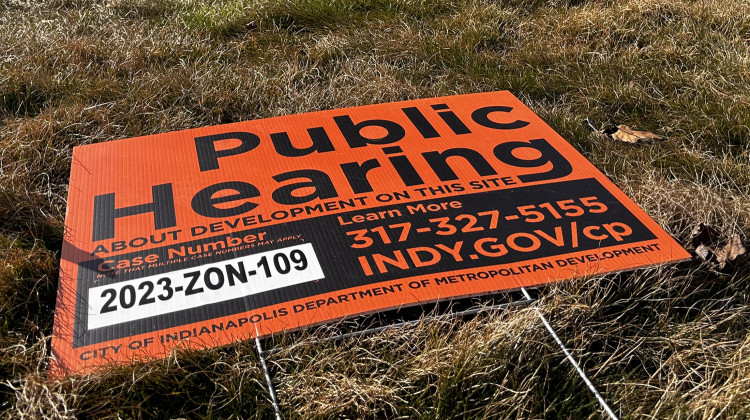
Indiana lawmakers approved SB 2 unanimously in committee Wednesday, before hearing nearly eight hours of debate on SB 167.
(Lauren Chapman/IPB News)The Indiana Senate Education and Career Development Committee held its first meeting of the 2022 legislative session Wednesday. Members took their first steps to fast-track a virtual funding fix and heard hours of testimony on legislation about curriculum and classroom transparency for schools.
Senate Bill 167 would, in part, create committees for parents and teachers to review school curriculum and content. It also would prohibit schools from including what supporters call "divisive" concepts in classrooms, teacher preparation programs or training, and require them to post details about lesson plans online.
Sen. Scott Baldwin (R-Noblesville) authored the bill, and said the intent is to prevent teachers from telling students how to feel about certain issues and avoid division among different groups of students.
"They need to be position neutral, not influence that one way or the other," Baldwin said.
READ MORE: Career-technical educators call social emotional learning 'a huge value' in schools
Join the conversation and sign up for the Indiana Two-Way. Text "Indiana" to 73224. Your comments and questions in response to our weekly text help us find the answers you need on statewide issues.
Supporters are concerned about how some teachers approach conversations on topics like anti-racism and equity, as well as how schools and educators have handled local parents' concerns. But many who oppose the bill say it could limit children's access to a well-rounded education and adds more to teachers' already overwhelming workloads.
But before the nearly eight hours of debate over the controversial legislation and its many components, lawmakers took first steps to fast-track an education funding fix for schools.
Senate Bill 2 was prompted after school leaders grew concerned they would miss out on funding as quarantines and COVID-19 infections forced many students online as the school year began.
Indiana law says schools get less funding for students who receive instruction online more than 50 percent of the time. A student's status is usually determined between the start of the school year and what's called the ADM count date – which landed on Sept. 17.
Committee Chair Jeff Raatz (R-Centerville) authored SB 2 to address those concerns. He said it expands the window schools can use to calculate students' virtual status from the start of the school year to the end of the semester.
"If the semester ended in a school district on Dec. 31, that's the end of it or if it ended on Dec. 20, that would be the beginning of the look-back period to determine that 50 percent piece," Raatz said.
The committee approved SB 2 unanimously, and House Bill 1134, the House version of SB 167, is scheduled for a committee hearing Monday.
Contact reporter Jeanie at jlindsa@iu.edu or follow her on Twitter at @jeanjeanielindz.
9(MDAyMzk1MzA4MDE2MjY3OTY1MjM5ZDJjYQ000))
 DONATE
DONATE





 View More Articles
View More Articles


 Support WFYI. We can't do it without you.
Support WFYI. We can't do it without you.